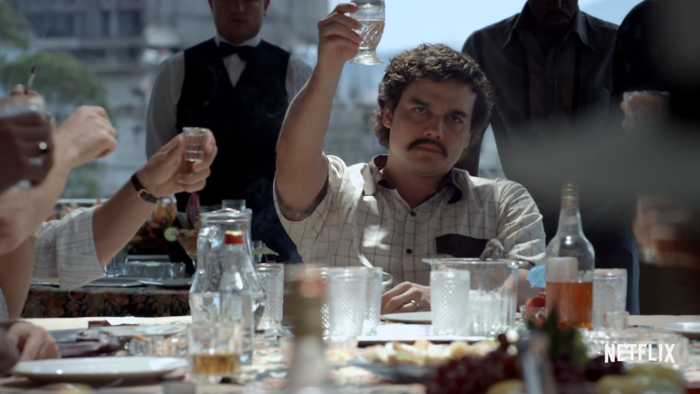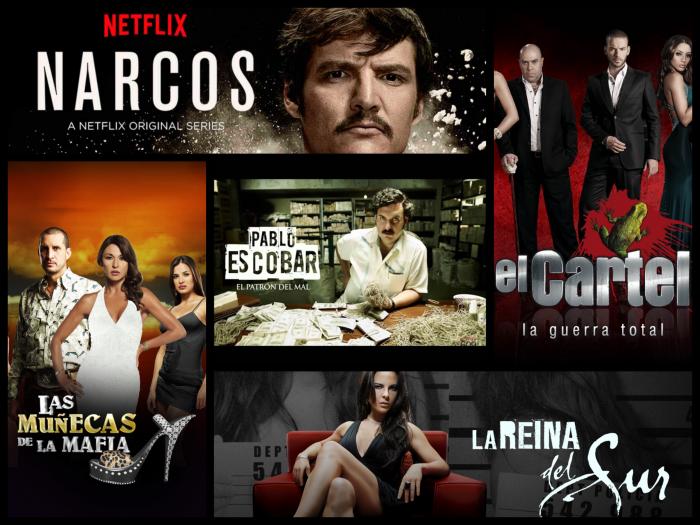It was destined to be a hit: a TV mini-series about the life of the infamous Colombian drug lord Pablo Escobar and his wars with opposing Cartels and Drug Enforcement Agents. What is less well-known is that Netflix’s Narcos is in fact an English-language version of the phenomenon of the narconovela that has gripped Colombian and Latin American audiences for the last decade. These have taken the traditional telenovela and introduced storylines based on Latin America’s notorious drug wars.
The most successful narconovela to date - El Cartel de los Sapos (The Snitch Cartel) - was based on the lives of much more recent drug lords than Escobar; the heads of Colombia’s Norte del Valle Cartel. Most of its characters are still alive in American jails. It was so successful that a sequel and a Hollywood backed film followed, and it was the first non-English-speaking soap opera to be shown on NBC’s Latino orientated channel Mun2.
Other narconovelas such as Las Muñecas de la Mafia (The Mafia Dolls) in 2010, or Victorinos, were also huge successes, with the latter becoming America’s highest-rated Spanish-language premiere when it was first shown.
Their success has naturally stirred a debate about the glorification of a violent culture that has brought pain and misery to so many. Venezuelan regulator Conatel asked TV channels to stop showing Escobar: El Patrón del Mal (Escobar: The Drug Lord) this year, giving such reasons. Many think, however, the real objection was that this narconovela portrayed the Venezuelan army as a partner in crime. And this is where the real debate starts. Are the narconovelas glorifying or informing?
The continuing success of narconovelas has ensured that the format has been shared worldwide. With the financial success of Narcos, major American and European companies are planning further adaptations of these soap operas; such as the recently broadcast Queen of the South, based on the Telemundo show La Reina del Sur.

Narconovelas Create Awareness and Progress
The narconovelas are more nuanced than simple glorification. They explore the authentic, complex and less than glamorous stories behind figures such as Pablo Escobar, Joaquín ‘El Chapo’ Guzmán and the Orijuela brothers.
El Cartel de los Sapos (The Snitch Cartel), the 2008 novela exploring the lives of two friends from school who become embroiled in the drug industry, is probably the best example of this authenticity. In fact, one of the friends ended up writing the book - his autobiography – on which the series was based. The other was Fernando Henao, the youngest brother of Orlando Henao, boss of the Norte del Valle Cartel (who was, some say, even richer than Pablo Escobar).
The series is hardly an advert for life as a trafficker though; everyone ends up dead or in jail. Even the author lost his family and cannot go back to Colombia.
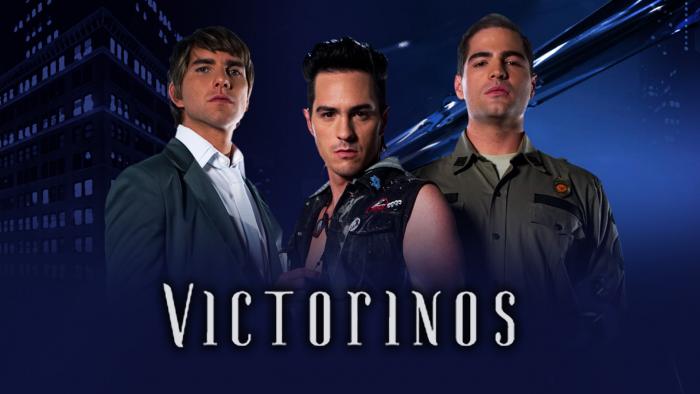
One could argue that The narconovelas have had a cathartic effect on the countries affected by them. Dago Garcia, vice-president of Colombia’s Caracol TV, told NPR that ‘the theme [of the drug wars] had been suppressed, because it was a topic that couldn’t be discussed without putting your life at risk.’ The fact that Colombia started producing these narconovelas at all is a testament to its recent relative stability. And even if the narco-wealth is glorified, as criticised by Pablo Escobar’s own son Juan Pablo who, from exile, has said that the constant threat of death renders the wealth meaningless, has at least prompted such a discussion.
Often rejecting the ‘hero versus villain’ narrative that plagues most crime dramas, even Netflix’s Narcos has addressed the US’ flagrant funding of paramilitaries and gangsters when serving its own interests. As Wagner Moura says in an interview with Rolling Stone, ‘Netflix never wanted to make [Narcos] about good American cops that go to a third-world country to save poor people from a bad guy…this concept of [who is] good and who is bad is always being played with.’
Through Narcos, millions of previously ignorant viewers – Latinos and non-Latinos – have gain a better and more nuanced understanding of the Latin American drug wars, past and present.
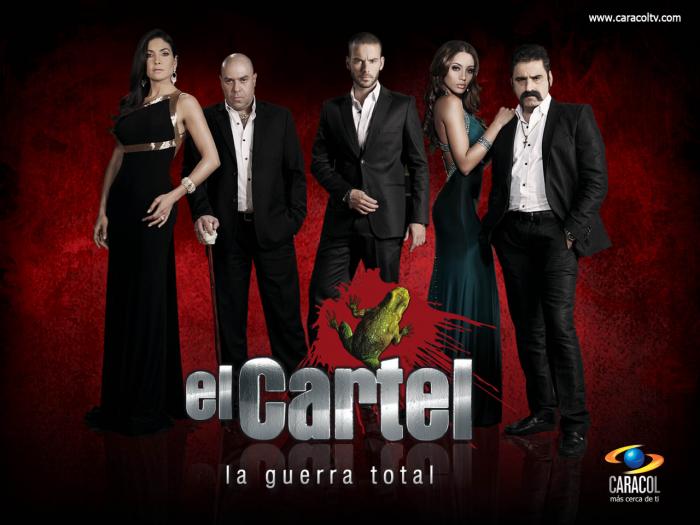
Narconovelas Glamorize and Sensationalize Narco-trafficking
These mini-series do not provide a balanced portrayal of the drug trade. Television relies on sensationalism, violence, conflict, and action to attract viewers, manipulating their aspirational tendencies. TV networks are businesses whose interest lies in what sells, not what benefits society. This is true of all novelas, but is especially of those based around the narcotics trade.
In Mexico, narconovelas have fed into and taken advantage of the equally controversial narcocorridos music to dramatize their work, and in extreme cases have even been based on the corrido itself; for example, Camelia la Texana, a series first broadcast in 2014, was based on Contrabando y Traicíon (Smuggling and Betrayal), a corrido recorded by Los Tigres del Norte. This wider trend of ‘narco-culture’ has glamorized the lives of drug traffickers, and the narconovelas have exacerbated this by having a greater commercial focus than the ordinary corrido performer.
Although condemnations by senior politicians hold little credibility, and in some cases have only served to create more publicity for the narconovelas, even the producers admit there is some truth in the criticism. Nelson Martínez, executive producer of El Capo, a MundoFox programme portraying a fictional drug lord called Pedro Pablo, told Al Jazeera, ‘It’s amazing how an anti-hero like a narco- trafficker can capture audiences – he is at once complex yet human and that’s why people fall in love with him.’ In a perverse twist, traffickers themselves are seduced by the glamour of their own media reflection, with ‘Chapo’ Guzmán’s attempt to meet narconovela actress Kate del Castillo before his arrest earlier this year.
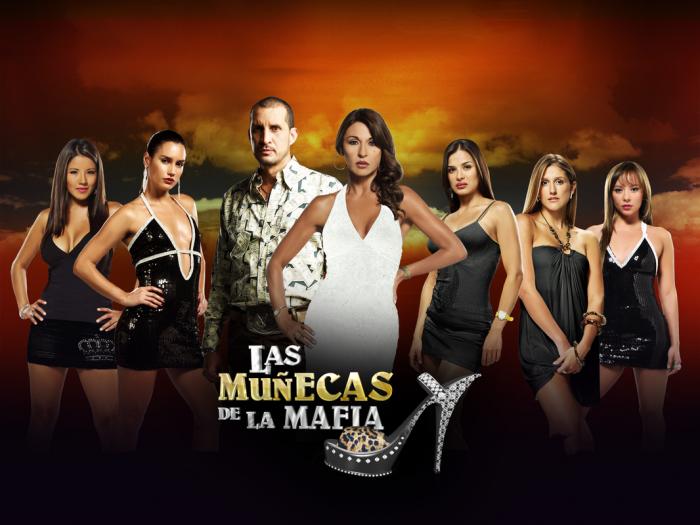
Finally, the emphasis on drug-related conflict and crime, no matter how nuanced it is, still reinforces the generally held perception in the US and Europe that there is not much more to Latin America than narco-trafficking. How many Latin American dramas, that are not about narco-traficking, have been adapted for English-language release? They are selling to the US and Europe what they want to see, and perpetuating the stereotypes that they already hold.
Narconovelas DO glamorize drug trafficking, and have given a new lease of life to the already inflated mythical image around Pablo Escobar and Co. that Colombia has been trying to shake off for years.
